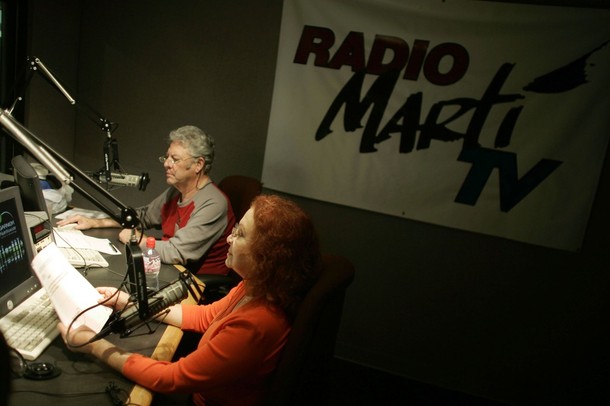
Radio and TV Martí is a U.S. government-funded broadcaster that transmits Spanish-language programming to Cuba. Its declared mission is to break the “information embargo” imposed by the Castro regime by providing balanced news reporting on events around the globe. Supporters say the station offers Cubans essential information that the state-run media refuses to provide. Critics argue that the perspectives offered are far from balanced, and are in fact designed to foment internal subversion on the island.
The broadcasts have long been a topic of controversy, and the public funding it has received thus far—which totals $500 million—is becoming more and more difficult to justify as the programming reaches a tiny fraction of the island’s population. The Cuban regime, after all, works hard to jam the signal for Radio and TV Martí, making it difficult for those Cubans that could otherwise tune in to do so.
This week Congress heard testimony on the issue, including a report from the Government Accountability Office. One representative from the Office reported on the four telephone surveys taken in Cuba since 2003 that tested how large of an audience the broadcasts were reaching: “Less than one percent of the respondents had watched TV Martí over the past week. Most notably, the most recent surveys in 2006 and 2008 showed no increase in reported TV Martí viewership.”
Other testimony built upon these observations: John Nichols of Penn State University called TV Martí “a highly wasteful and ineffective operation.” Philip Peters of the Lexington Institute argued: “The only thing TV Marti has challenged is that Congress truly cares about the taxpayer money.” Democratic Senator Bill Delahunt, in turn, said, “In its actual form, I consider that TV Martí is a colossal waste of money.” The recommendation from these men is to shut the station down.
President Obama’s 2010 budget calls for $32.5 million for the broadcasts, which is lower than previous years and is a 7% decrease from last year. The small decrease in funding would require cuts in commentary segments in favor of “all-news” plus Major League Baseball games. Around 20% of employees at the station would be forced out of work—the largest cut-back in its history. But $32.5 million during an economic downturn, when many public programs are seeing belt-tightening budget cuts, still suggests a fair amount of support for the project.
Congress will ultimately be the judge of whether to approve this level of funding, less or more, or to scrap the station altogether.